Learning Standards Digital Representation Specification: Publishing Agent Design and Requirement
This specification presents the design and requirements for publishers that supports the process of making the digital representation of a standards statement available on the Internet for anyone to access and use.
Scope, Technical Requirements, Approaches, and Recommendations- GIM-CCSS Project
This document outlines key technical requirements, solution approaches and recommendations for a free, open and faithful digital representation of the Common core State Standards (CCSS) at lower levels of granularity as determined by users. It technical discusses issues surrounding:
– creating a digital/machine readable/processible representation of the CCSS based on a well-defined information architecture
– assigning, using and managing identifiers assigned to granular statements within the CCSS
– providing metadata describing the granular statements within the CCSS.
SETDA Report: Technology Requirements for Large-Scale Computer-Based and Online Assessment: Current Status and Issues
This report provides a snapshot of the current technology requirements for select states implementing large-scale, online summative assessments (and for formative and other assessments when available). In addition, it presents a list of issues for the Race to the Top consortia and states to consider as they make decisions regarding their technology requirements for initial implementation by 2014-15 and beyond.
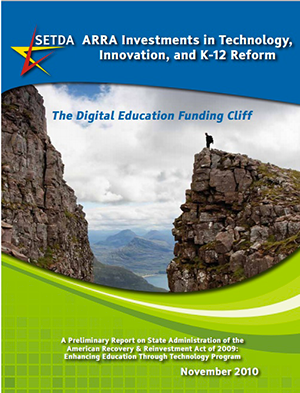
ARRA Investments in Technology, Innovation, and K-12 Reform: The Digital Education Funding Cliff
A Preliminary Report on State Administration of the American Recovery & Reinvestment Act of 2009: Enhancing Education Through Technology Program.
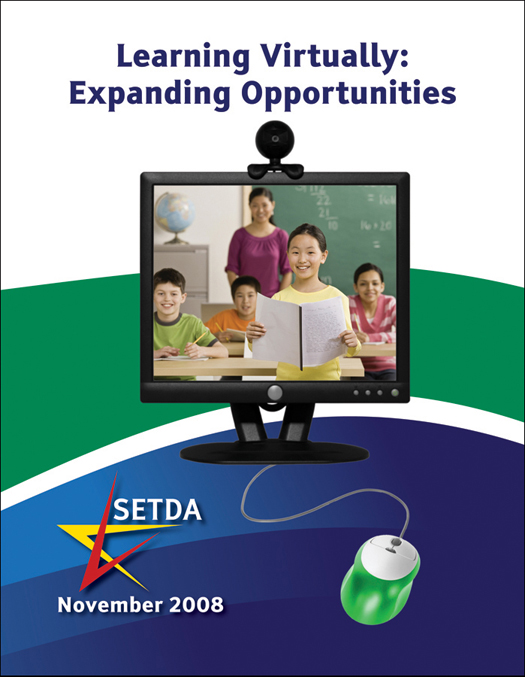
Learning Virtually: Expanding Opportunities
The paper highlights the opportunities offered through virtual learning to provide each student the promise of access to age- and ability appropriate curriculum, rich and extensive resources and accurate and up-to-date assessments regardless of location, economic situation or time. When effectively used, virtual learning allows for student centered, self-directed, self-paced learning that greatly enhances the curriculum offerings schools provide.
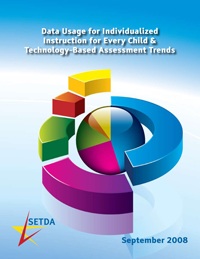
Technology-Based Assessments Improve Teaching and Learning
This paper focuses on the use of technology-based assessment systems to provide classroom teachers with innovative approaches for improving instruction for all students. Additionally, the report calls on states to redefine its role as “Data Compliance Officers” to “Data Leaders” – supporting the use of relevant, timely data at the school and district levels to improve instruction and teacher quality and drive school reform efforts.
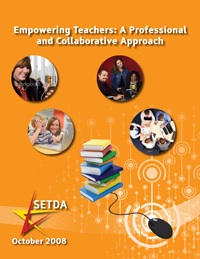
Empowering Teachers: A Professional and Collaborative Approach
Research shows that professional development changes practice when it is consistent, relevant and sustainable. This paper examines approaches such as technology coaches, curriculum cadres, and collaborative school reform teams that have proven to effectively change teacher behavior and increasing student achievement.
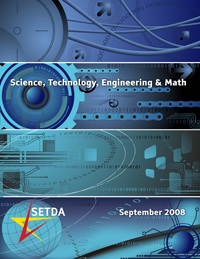
Science, Technology, Engineering, and Mathematics
This report addresses the need to provide all children with an education that includes a solid foundation of rigorous science, technology, engineering, and mathematics (STEM) instruction. The need is evident, yet the barriers are vast – recruiting and retaining highly qualified teachers with STEM backgrounds; school policies around credits and curriculum; student, teacher, and parent attitudes; time constraints; and lack of funding and/or leadership to infuse STEM approaches into the current system.
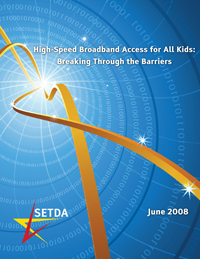
High-Speed Broadband Access for All Kids: Breaking through the Barriers
This paper tackles the issues facing full implementation of broadband into schools. Such issues include technical implementation, access for all, and leveraging the resources available with effective professional development, media and Internet safety training, as well as building the capacity of leaders to proper budgeting and plan for long term success.
